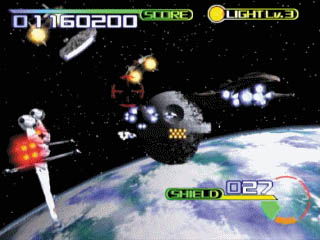Behold, my Games Industry Death Watch 2009 full list. Every studio closure/acquisition/downsizing that I could find.
January:
- Jaleco closes (IP and $7.736m/$17.68m loan sold to Game Yarou for $0.01)
http://www.gamasutra.com/php-bin/news_index.php?story=21930
- MS ACES (Flight Simulator team gone)
http://www.gamasutra.com/php-bin/news_index.php?story=21981
- MS cuts 30% of testers at MGS + unspecified GFW team
http://kotaku.com/5138389/more-microsoft-layoffs-hit-game-testers-games-for-windows-group
- Sega cuts 30 in San Francisco
http://www.gamasutra.com/php-bin/news_index.php?story=21942
- Eidos cuts 30 people at Crystal Dynamics
http://www.gamasutra.com/php-bin/news_index.php?story=21809
- Eidos closes Rockpool Games (Manchester) [mobile]
http://www.gamesindustry.biz/articles/eidos-closes-manchester-studio
- Seta Corp (Super Entertainment & Total Amusement) closed
http://www.gamasutra.com/php-bin/news_index.php?story=21943
- EA to cut 10% of staff and 9 studios consolidated/closed by March
---- unspecifed # @ Tiburon (Madden and Tiger Woods divisions confirmed hit)
---- Blackbox (200 out of 350 jobs cut, remainder absorbed into EA Burnaby [Vancouver])
---- 21 customer service, half of QA, all of playtest group @ Mythic
http://www.gamasutra.com/php-bin/news_index.php?story=21974
http://www.gamasutra.com/php-bin/news_index.php?story=21931
- unspecified cuts at Sony and MS (kotaku sez bulk of the current 1400 cut from MS are from Entertainment & Devices)
Nexon closes Humanature studio (Vancouver) 90 Jobs lost
http://www.gamesindustry.biz/articles/nexon-closes-humanature-studio
Unspecified layoffs at Kuju in US and UK
http://www.gamesindustry.biz/articles/kuju-confirms-redundancies-across-studios
Ensemble closes
http://www.ensemblestudios.com/blogs/bshelley/archive/2009/01/29/goodbye-and-thanks.aspx
Disney Interactive Studios layoff ~70 at Propoganda, confirms plans to "consolidate a handful of its studios, including Avalanche Software and the Fall Line studio."
http://blog.wired.com/games/2009/01/unannounced-tur.html
February:
Brighter Minds (World of Goo) goes Bankrupt
http://www.gamesindustry.biz/articles/world-of-goo-publisher-goes-bankrupt
THQ Mobile shuts down in San Diego, Germany and UK (~100 jobs)
http://blog.wired.com/games/2009/02/would-be-bomber.html
Action Pants (British-Columbia) acquired by Ubisoft
http://kotaku.com/5145390/ubisoft-acquires-action-pants
Free Radical acquired by Crytek
http://www.gamasutra.com/php-bin/news_index.php?story=22156
EA to close 12 facilities + 1100 jobs
http://www.gamesindustry.biz/articles/ea-to-close-12-facilities-following-USD641m-loss
Snowblind Studios acquired by Warner Bros
http://www.gamasutra.com/php-bin/news_index.php?story=22178
Eidos drops casual studio (Gimme5games)
http://www.gamesindustry.biz/articles/eidos-drops-casual-games-studio
Sega cuts 18% of workforce (560 jobs)
http://www.gamasutra.com/php-bin/news_index.php?story=22239
NCSoft cuts 55 at NC West (Europe)
http://www.gamesindustry.biz/articles/nc-west-cuts-dow-european-office
Midway files for Chapter 11 bankruptcy
http://www.midway.com/us/pr/mpr_5591.html
Rare cuts artist and engineer positions (12 known)
http://www.gamesindustry.biz/articles/rare-axes-artist-and-engineer-positions
Popcap acquires Gastronaut Studios
http://www.gamesindustry.biz/articles/popcap-acquires-xbla-studio
Fillpoint acquires Crave Entertainment and SVG Distribution
http://www.gamesindustry.biz/articles/fillpoint-acquires-crave-and-svg
March:
THQ cuts majority of Volition's (Saint's Row) QA staff - 86 of 102
http://www.gamasutra.com/php-bin/news_index.php?story=22562
THQ to sell or close Big HUge Games, Heavy Iron and Incinerator becoming independent.
http://www.gamesindustry.biz/articles/thq-to-sell-big-huge-games-or-close-studio
Namco to buy all branches of D3 publisher, including studio Vicious Cycle
http://www.gamesindustry.biz/articles/namco-to-acquire-complete-d3p-businesse
April:
THQ confirms unspecified layoffs at BigHugeGames, still looking for sale
http://www.gamesindustry.biz/articles/thq-confirms-lay-offs-at-big-huge-games
May:
3D Realms closes
http://www.gamesindustry.biz/articles/3d-realms-closes-doors
Microsoft Game Studios acquires BigPark
http://www.gamesindustry.biz/articles/microsoft-to-acquire-bigpark
38 Studios acquires BigHugeGames from THQ
http://www.gamesindustry.biz/articles/38-studios-acquires-big-huge-games
Grin Studios cuts 160 people
http://forums.cgsociety.org/showthread.php?f=59&t=768094
Factor 5 closes
http://www.edge-online.com/news/lair-dev-factor-5-closes
June:
Management Buy-Out/Closure of Chemistry (Kuju)
http://www.gamesindustry.biz/articles/mbo-or-closure-for-kujus-chemistry-studio
Deadline Games (Watchman Game) files for bankruptcy
http://www.gamesindustry.biz/articles/deadline-games-files-for-bankruptcy
Crystal Dynamics cuts 25 more people
http://gamasutra.com/php-bin/news_index.php?story=23989
Midway San Diego and Newcastle face closure by end of June.
http://www.gamesindustry.biz/articles/midway-newcastle-san-diego-face-closure-by-end-of-june
America's Army studio closes
http://www.gamesindustry.biz/articles/americas-army-studio-closes-doors
Rockstar lays of 10% of New England staff
http://www.gamesindustry.biz/articles/rockstar-lays-off-10-percent-of-new-england-staff-report
ZeniMax (owner of Bethsoft) acquires id Software
http://www.gamesindustry.biz/articles/zenimax-acquires-id-software
July:
Heavy Hammer lays off Blue Omega team
http://www.gamesindustry.biz/articles/blue-omega-lays-off-damnation-team
Sony Online Entertainment lays off 5% of staff
http://www.gamasutra.com/php-bin/news_index.php?story=24483
Midway Closes Chicago Corporate Headquarters and Newcastle Studio
http://www.gamesindustry.biz/articles/60-jobs-go-as-midway-closes-chicago-corporate-office
http://www.gamesindustry.biz/articles/midway-confirms-newcastle-studio-closure
August:
Grin shuts down
http://www.gamesindustry.biz/articles/grin-confirms-company-closure
THQ Buys Midway San Diego
http://www.gamesindustry.biz/articles/thq-buys-midway-san-diego-studio
EA cuts back staff at Maxis
http://www.gamesindustry.biz/articles/ea-cuts-back-staff-at-maxis
Raven lays off 30-35
http://www.gamesindustry.biz/articles/raven-lays-off-staff-following-release-of-wolfenstein
September
Bottlerocket closes
http://www.gamesindustry.biz/articles/bottlerocket-closes-its-doors
Disney acquires Wideload Games
http://www.gamesindustry.biz/articles/disney-adds-bungie-co-founder-wideload-to-games-team
Funcom to cut 20% of workforce
http://www.gamesindustry.biz/articles/funcom-to-cut-20-percent-of-workforce
October:
Transmission Games lays off 20
http://www.gamesindustry.biz/articles/transmission-games-lays-off-over-20-staff-members
Ubisoft acquires Trackmania developer Nadeo
http://www.gamesindustry.biz/articles/ubisoft-acquires-trackmania-developer-nadeo
Activision lays off 30 from 7 studios
http://www.gamesindustry.biz/articles/activision-lays-off-30-from-newly-purchased-7-studios
Activision closes Shaba Studios
http://www.gamesindustry.biz/articles/activision-confirms-shaba-studios-closure
Optimus acquires Witcher developer in CD Projekt takeover
http://www.gamesindustry.biz/articles/optimus-finalises-cd-projekt-takeover
Idol Minds lays off ~26
http://www.gamesindustry.biz/articles/pain-developer-hit-by-lay-offs
Transmission Games closes
http://www.gamesindustry.biz/articles/transmission-games-closes-doors-report
Slipgate Ironworks lays off ~50
http://www.gamesindustry.biz/articles/gazillion-lays-off-staff-at-romeros-slipgate-ironworks
November:
Square-Enix/Taito/Eidos cuts 10% globally
http://www.gamesindustry.biz/articles/square-enix-global-headcount-reduction-around-10-percent
EA Acquires Playfish
http://www.gamesindustry.biz/articles/ea-confirms-USD300m-playfish-acquisition
EA to layoff 1,500 by April 2010, including "several studio closures"
Tiburon, Blackbox, Redwood Shores, Mythic reportedly affected
http://www.gamasutra.com/php-bin/news_index.php?story=25999
Playdom acquires Green Path and Trippert Labs
http://www.gamesindustry.biz/articles/playdom-acquires-green-patch-and-trippert-labs
Pandemic closes
http://www.gamesindustry.biz/articles/report-ea-will-close-pandemic-studios-today
Krome faces unspecified number of layoffs
http://www.gamesindustry.biz/articles/staff-layed-off-at-aussie-studio-krome
December:
Fuzzeyes lays off majority of staff
http://www.gamesindustry.biz/articles/fuzzyeyes-studio-lays-off-majority-of-staff
Threewave studio enters reorganization
http://www.gamesindustry.biz/articles/threewave-enters-reorganisation-phase
Rumor: Apsyr cuts staff by over 50%
http://www.gamesindustry.biz/articles/rumour-aspyr-media-cuts-staff-by-over-50-percent
SCEA drops 30 QA jobs
http://www.gamesindustry.biz/articles/scea-consolidates-qa-group
Paradox Interactive acquires AGEOD
http://www.gamesindustry.biz/articles/paradox-interactive-acquires-strategy-developer-ageod
Oberon Media lays off 100
http://www.gamesindustry.biz/articles/casual-games-firm-oberon-media-lays-off-100-staff

